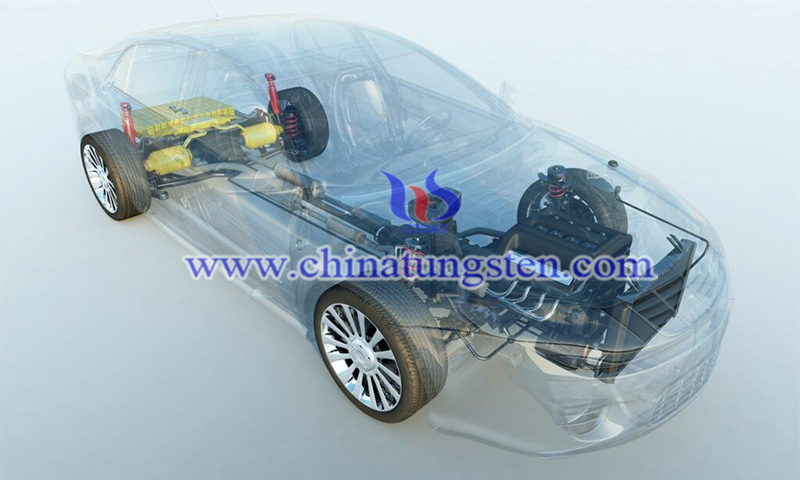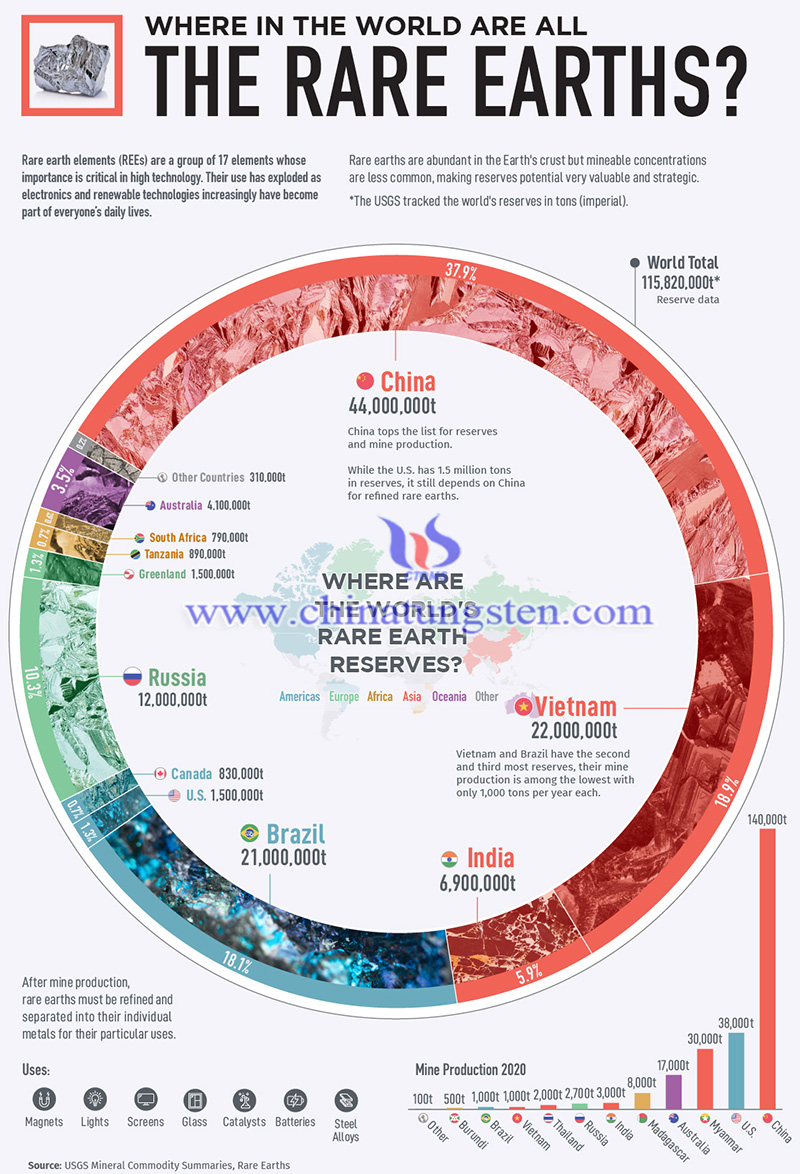Nevada Democratic Sen. Working on Tax Credits for Battery, Rare Earth Industries
- Details
- Category: Tungsten's News
- Published on Wednesday, 27 April 2022 11:28
Nevada Democratic Sen. Catherine Cortez Masto is drafting legislation that would provide tax incentives for manufacturers of battery and rare earth magnets manufacturers to increase the production of materials used in electric vehicles and other technologies, an action she says would create more jobs in the state's mineral processing and recycling sectors.
Members of the Senate Energy and Natural Resources Committee, including Cortez Masto, agreed with the move at the hearing, saying more domestic production of lithium, nickel, cobalt, and rare earth minerals is needed to increase the use of electric vehicles.
President Joe Biden has set a goal of electrifying half of all U.S. cars by 2030, a goal that senators from both parties say is impossible to achieve if the U.S. can't produce the minerals needed to power the batteries in those cars. Cortez. Masto said Nevada is uniquely positioned as "the nexus of our clean energy and critical mineral future" because every aspect of lithium-ion battery manufacturing - mining, production, assembly, and recycling - was present in the state.

During the hearing, Cortez Masto said she introduced the bill - which creates tax credits for companies operating in the country's critical mineral supply chain - to improve the supply of "critical" minerals.
"We should be leading in this key material and should be competitive internationally," Cortez. Masto said at a recent hearing. She also said she is working with California Democratic Rep. She also said she is working with Rep. Eric Swalwell to introduce a "Rare Earth Magnet Production Tax Credit Act" that would support the domestic production of rare earth mineral magnets for the automotive and energy industries.
Swalwell introduced a version of the legislation in the House last year that would provide a credit of $20 per kilogram for rare-earth magnets produced in the United States, or $30 per kilogram if all the rare-earth materials used in the magnets are produced in the United States.
This credit does not apply if any part of the magnet is manufactured in Russia, China, North Korea, or any other "non-allied foreign country". David Howell, director of the U.S. Department of Energy's Office of Vehicle Technologies, told the Senate panel that the U.S. produces only about 9 percent of the world's batteries cells. a June 2021 White House report said domestic battery manufacturing "relies on foreign sources of batteries materials and precursor materials."
Duncan Robert, vice president for strategy and new initiatives at the Wilson Center, nonpartisan international affairs think tank, told the panel that the White House's goal may not be achieved without a "Herculean" effort to get the minerals out of the ground. "These are laudable goals, but I'm not sure they're realistic," Duncan said, questioning whether the technology to recover key minerals is immediately available.
Joe Britton, executive director of the advocacy group Zero Emissions Transportation Association, told the senators. Joe Britton told the senator, "Ninety-five percent of the minerals used in electric vehicle batteries can be recycled." J.B. Straubel, founder and CEO of Redwood Materials, a lithium-ion battery recycling company, said the technology for recycling and refining is quite sophisticated today. Recycling can meet approximately 25-30% of the demand for critical materials.
Nevada is home to the only active lithium production facility in North America and has notable lithium deposits, and several proposed projects are currently under review by the U.S. Department of the Interior. But these projects have attracted a number of lawsuits in Nevada from conservationists working to protect tribes and rare species, highlighting the tensions between developers and communities.

In February, the U.S. Fish and Wildlife Service proposed a rule to protect critical habitat for a rare flower that is threatened by a proposed lithium mine, further complicating the mine's future development. Another proposed lithium mine in an area called Thacker Pass on the Oregon-Nevada border is facing several lawsuits from conservation groups and several Nevada tribes to halt construction.
At last week's hearing, Masto compared Biden's electric vehicle goal to President Kennedy's 1962 call to reach the moon by the end of that decade, adding that the U.S. must "take advantage of the opportunities and the minerals we have here to build this clean energy economy here on American soil."
It's our plan to go to the moon, and it's important for the government to set a goal for all of us to mobilize resources," she said. “Whether we achieve change in the battery and rare earth industries may always be in question, but at least we are moving in the same direction."
- Rare Earth Manufacturer & Supplier, Chinatungsten Online: www.chinatungsten.com
- Tungsten News & Prices of China Tungsten Industry Association: www.ctia.com.cn
- Molybdenum News & Price: news.molybdenum.com.cn
- Tel.: 86 592 5129696; Fax: 86 592 5129797; Email: sales@chinatungsten.com



 sales@chinatungsten.com
sales@chinatungsten.com